Wastewater, Sewage and Effluent Treatment Plant Engineering & Consulting Services

Water Treatment Plant & Supply Network Engineering & Consulting Services
Solid Waste Management Engineering & Consulting Services
Infrastructure Management
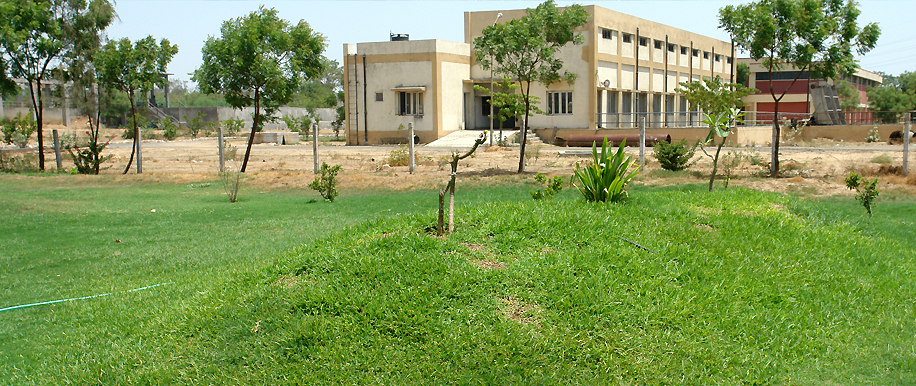
Garden Management
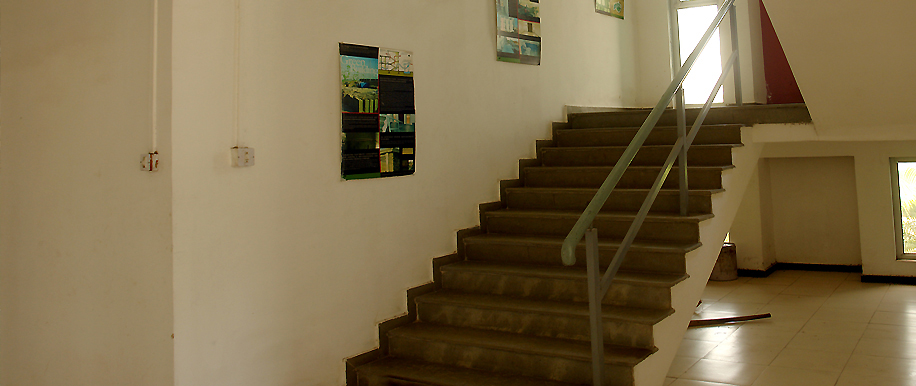
Green Building Design
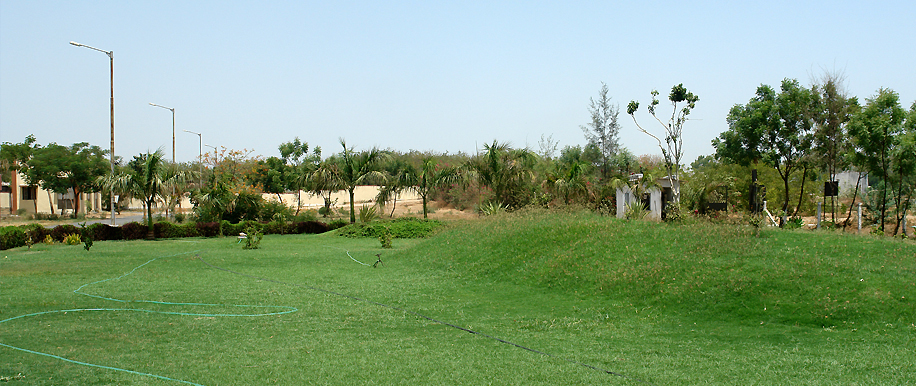
Landscape Design
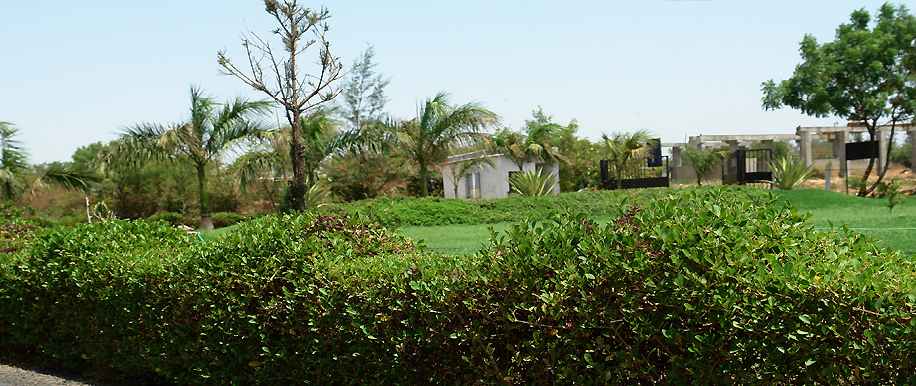
Environment Consultancy
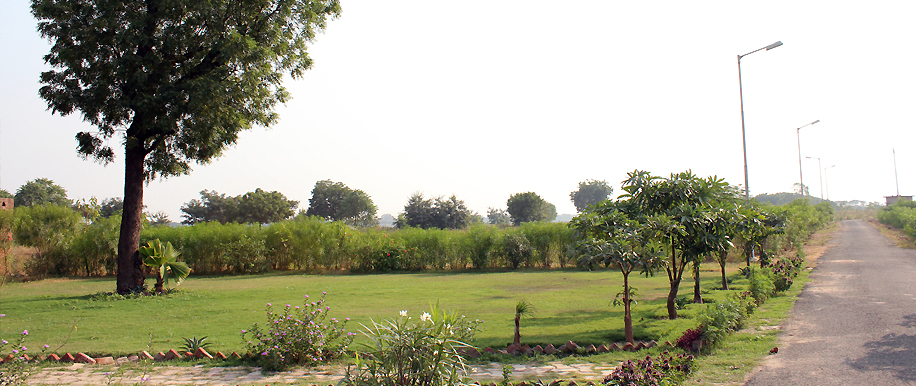
Environment Development Strategies
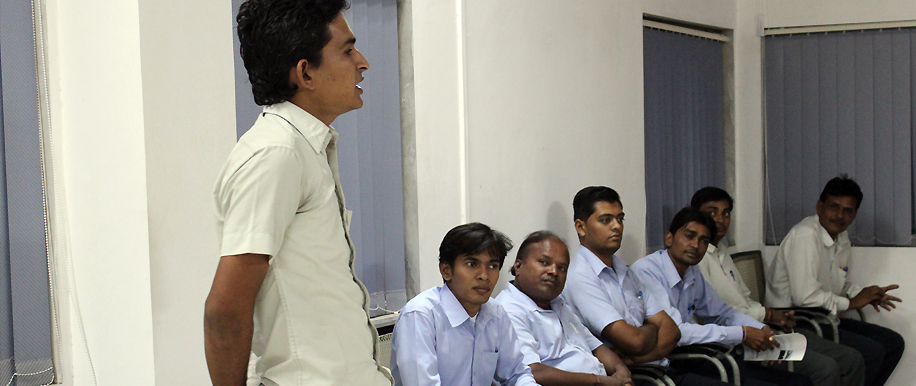
Staff Meeting @ R3 EMSPL
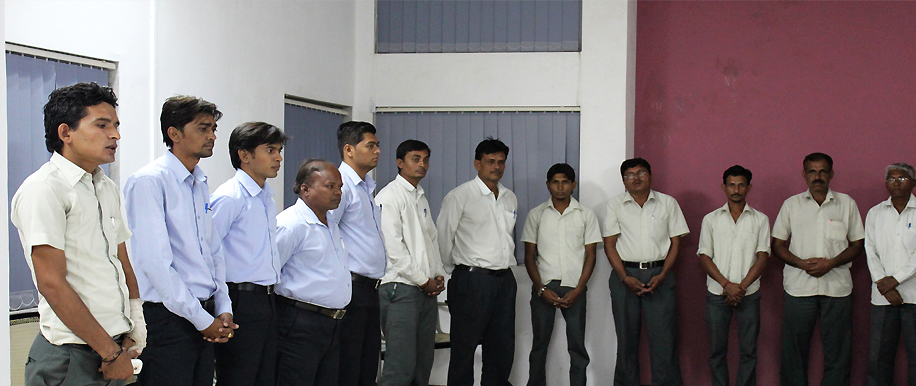
Training @ R3 EMSPL
Facts & Tips
Facts
- Countries including Spain, Italy, Peru, China and South Africa actually import water from exporting countries such as the US, Australia and Argentina. A staggering 1.1 billion people on earth have no access to clean drinking water.
- The amount of water that a single rainforest tree returns to the atmosphere in its lifetime of 100 years of more is truly prodigious – on the order of 2.5 million gallons.
- Water / Land – Each toilet flush uses about 6 gallons of water and a 5 minute shower can use 35 gallons. A leaky toilet can waste 90,000 gallons of water every year.
- Water is the only substance that naturally exists in three states (solid, liquid, gas) on earth.
- Water expands by 9 percent when it freezes.
- March 22 is World Water Day, as declared by the United Nations.
- By the time you feel thirsty, your body has already lost more than one percent of its total water.
- One inch of rain on an area of one kilometer by one kilometer is equivalent to 25,400 liters of water, which is equal to about 134 bathtubs of water!
- A person can live for up to one month without food, but only about one week without water.
- 66 percent of the human body is water.
- 75 percent of the human brain is water.
- A living tree is 75 percent water.
- Globally, 69 percent of withdrawn water is for agriculture, 23 percent is for industrial purposes and 8 percent is for domestic purposes.
- It takes 215,000 liters of water to produce one ton of steel.
- To manufacture one complete car including tires 147,972 liters of water is used.
- To produce one kilogram of paper approximately 300 liters of water is required.
- One drop of oil can make up to 25 liters of water unfit for drinking.
- An average home powered by a coal utility will burn 12,000 pounds of coal a year and will cause about the same amount of pollution as 2 cars. By using renewable energy as the primary power source, the reduction of pollution per household would be equivalent to that of planting 400 trees.
- Rainforests are being destroyed at a staggering rate. According to the National Academy of Science, at least 50 million acres a year are lost, an area the size of England, Wales, and Scotland combined.
- Metal – The energy saved from one recycled aluminum can, will operate a television for 3 hours.
- Paper – Waste paper makes up 40% of our solid waste. We could reduce by 6 million tons the waste going to landfills if we recycled all our newspapers. Americans recycle 245 million tons of paper every year.
- Every ton of paper made from recycled materials saves about 17 trees.
- Recycling a glass jar saves enough energy to light a 100-watt light bulb for four hours.
- Wastes, including arsenic, lead and radium-226, brought to the surface as a normal consequence of oil and gas drilling in the Gulf of Mexico has resulted in the creation of a 5000 square kilometer “dead” zone on the sea floor.
- The first municipal water filtration works was opened in Paisley, Scotland, in 1832.
- Methods to improve the taste and odour of water occurred as early as 4000 B.C., when Sanskrit and Greek people recommended charcoal filtering, exposure to sunlight, boiling and straining.
- In 1908, chlorine was used for the first time as a primary disinfectant of drinking water in the United States.
- In India, only about 26 per cent of domestic and 60 per cent of industrial wastewater is treated.
- The World Bank’s total commitment to India’s water sector amounts to more than USD 1.3 billion.
- Overall, the annual per capita availabilityof renewable freshwater in the India has fallen fromaround 5,277 cubic meters in 1955 to 2,464 cubic metersin 1990. Given the projected growth of population by theyear 2025, the per capita availability is likely to drop tobelow 1,000 cubic meters. If the availability drops belowthis level, water will have become a scarcity across thecountry.
- Of all cities in India, only 50 per cent are supplied with piped water.
- According to the census of2001, all large Indian cities together generated an estimated 29,129 million liters perday sewage (as per population in 2001 census). But the installed sewage treatmentcapacity was only 6,190 million liters per day. The gap of 22,939 million liters perday was closed since 2001 only marginally. At present, a capacity addition of around1,700 million liters per day is under planning or construction.
- In 2005, around 65 per cent of households in Ahmedabad, Delhi,Hyderabad, Kanpur, Kolkata, Madurai and Mumbai faced waterdeficiency.
- Due to increasing awareness of potential health problems, packaged drinking waterand water dispensers have become quite popular in India. With around 1,600brands, the Indian packaged drinking water sector is estimated to have a size of USD247 million. About 5 billion liters of bottled water are sold in India today, making thecountry the tenth largest consumer of bottled water globally.
Tips
- Stop using bottled water. This may be very hard for many, I understand. If it’s not that hard for you, start using re-usable materials and fill it up every time.
- Recycle. Don’t just throw your old electronics and batteries to trash. Make use of local free recycling facilities. Dispose your plastic containers as well by separating them out from normal trash.
- Use ceramic cups. Instead of plastic, paper or Styrofoam, the ceramic cups can be used over and over. This reduces the impact on the environment and on your budget.
- Reuse and re purpose. Whenever possible, re-use the containers, cartons, envelops, plastic bags and your tooth-brush as well for cleaning your sports shoes.
- Use energy-efficient bulbs. In the long run they save a lot of money and energy. Best are the LED bulbs, even fluorescent light bulbs consume 1/3rd (or lesser) of the energy of incandescent light bulbs.
- Have indoor plants. Indoor plants and aquatic plants (in aquariums) are very efficient in cleaning the inside air pollution of our homes by increasing oxygen level. Think about it, by spending a little money to green up our homes we are improving our health as well. In the long run, these efforts should pay off in terms of better health.
- Deposit your empty plastic grocery bags and some fabric bags in a canvas tote hanging on your doorknob. You will not forget them when you will leave the house.
- To use less plastic bags, go shopping with a plastic container in the trunk of your car. You can buy a portable folding plastic box, use a clothes basket, or similar box for this purpose.
- Do not buy storage containers. Use used packages for storage, like glass containers and plastic boxes from yogurt, sour cream, cottage cheese, whipped cream etc. They are fantastic storage utensils, and I use the plastic containers even in the freezer. Small glass containers are also fantastic to store tiny tools, and higher glass containers are excellent for elongated utensils like pencils and pens.
- Think about eating less meat and consuming it only occasionally and consciously. The carbon dioxide emission from the meat production is higher than the total emissions of all vehicles.
- Buy vegetables, preferably in their harvest season, and use locally grown food. This would allow -avoiding high-shipping costs and saving on greenhouse energy costs.
- Reuse egg-cartons for storage of small items.
- Decorate such used egg-cartons, other storage boxes, or empty of their contents glass containers. You can paint or beautify them.Use these gifts to make your life beautiful in yellowish-greenish-blue colors with some spots of red.
- Consider not to buy products from distant countries because of the energy used for their shipping.
- The livestock we rear for meat emit more greenhouse gas than the entire world’s transport! The greenhouse gas that livestock produce is called methane.
- Pleasing products. Many household cleaning products contain harmful chemicals which are washed down the drain. Encourage your parents to buy eco-friendly products or even make your own from natural substances like vinegar and lemon juice.
- Unplug. Leaving devices plugged in, such as laptop chargers or toasters, can eat up "phantom" energy. Even when an appliance is turned off, it may still use power. Try unplugging when possible.
- Don't waste food. The best way is to use up your leftovers and plan your meals so you buy no more than you need. If you do have an overrun, share it with friends or (if appropriate) with local wildlife.
- Buy used items whenever possible. The production of new products consumes energy and natural resources. Scour thrift stores, estate and yard sales, flea markets, online auctions and classified sites for clothing, appliances, electronics and furniture.
- Donate clothing, furniture, books, CDs and household goods you no longer need or give them to friends or family members instead of throwing them in the trash.
- Eliminate ants naturally. Spray white distilled vinegar or lemon juice around doorways and windowsills to deter ants from entering your home. You can also sprinkle mint, cinnamon, chili powder or black pepper in spots frequented by ants.
- In ester times people used to wake up early so that they can finish all the work to be done before sunset. But now with the presence of electricity and artificial lighting one does not see any need in waking up early. From the reports 35% of the energy consumed in a house in India is consumed in lighting a house after sun set. So, waking up early is not only going to keep you healthy but also will make you save energy and cut down your electricity bills.
- It seems little disgusting to do the kitchen waste management but the advanced products in the market have made it quite easy. A stainless steel kitchen composter with carbon filters is readily available in the market which makes the whole process odor less. The compost generated acts as fertilizer so can be used in house plants.
- According to studies 30% of carbon-dioxide is added to the environment by private transportation. We understand that using public transportation is not convenient all times but, one can always car pool. Try the option of taking a walk if you have to pick bread from the grocery store or travel a small distance. Your little effort will help in reducing the demand of petrol and traffic on roads and will also better your physical health.
- Recycled glass reduces related air pollution by 20 percent and related water pollution by 50 percent. If it isn't recycled it can take a million years to decompose.
- Indian businesses throw away 21 million tons of paper every year, equal to 175 pounds per office worker. For a quick and easy way to halve this, set your printer's default option to print double-sided (duplex printing). And when you're finished with your documents, don't forget to take them to the recycling bin.
- Have a no-bath week, and take showers instead. Baths require almost twice as much water. Not only will you reduce water consumption, but the energy costs associated with heating the water.
- Most software comes on a compact disc, and more than thirty billion compact discs of all types are sold annually. That's a huge amount of waste, not to mention the associated packaging. Another bonus to downloading your software is that it's often available for download at a later date when you upgrade to a new computer or are attempting to recover from a crash.
- Answering machines use energy 24 hours a day, seven days a week. And when they break, they're just one more thing that goes into the landfill. If all answering machines in U.S. homes were eventually replaced by voice mail services, the annual energy savings would total nearly two billion kilowatt-hours.
- By some estimates, if all households in the India paid their bills online and received electronic statements instead of paper, we'd save 18.5 million trees every year, 2.2 billion tons of carbon dioxide and other greenhouse gases, and 1.7 billion pounds of solid waste.
- Take what you've learned, and pass the knowledge on to others. If every person you know could take one small step toward being greener, the collective effort could be phenomenal.

